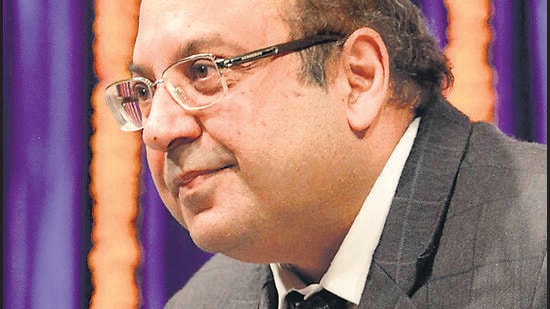Former SC judge Nariman wants deadline for govt to respond on collegium picks
His comments come at the time when law minister Kiren Rijiju has repeatedly criticised the collegium system, and the Supreme Court has pushed back.
New Delhi: Former Supreme Court judge Rohinton F Nariman on Friday asserted that it is the “bounden duty” of the Union law minister and the Centre to follow the collegium system of appointing judges in spite of their “diatribe” against the process, and urged that a Constitution bench pass an order fixing a deadline for the process.

“Once those five or more (judges) have interpreted the Constitution, it is your bounden duty as an ‘authority’ under Article 144, to follow that judgment. You may criticise it. As a citizen, I may criticise it, no problem. But never forget, unlike me, who is a citizen today, you are an ‘authority’ and as an ‘authority’, you are bound by that judgment - right or wrong,” said the former judge as he delivered the seventh Chief Justice MC Chagla Memorial Lecture.
His comments come at the time when law minister Kiren Rijiju has repeatedly criticised the collegium system, and the Supreme Court has pushed back.
ALSO READ: Centre bound to appoint judges upon reiteration: Supreme Court collegium
Justice Nariman went on to say that the Supreme Court should have another Constitution bench to fill the lacuna in the current system of appointing judges by setting down a deadline for the government to respond to the collegium’s recommendation. The memorandum of procedure (MoP), which was framed in 1999 to guide the appointments to the constitutional courts, does not have a timeline for the government to respond to either respond to the collegium if it has any objection regarding a name or notify appointments in case of agreement.
“And that Constitution bench should, in my humble opinion, lay down once and for all that once a name is sent by the collegium to the government, if the government has nothing to say within a period, let’s say 30 days, then it would be taken that it has nothing to say,” said the former judge, who retired in August 2021 after a tenure of seven years.
He said that the present gap in MoP, which allows the government, to sit on names is “very deadly” against democracy in this country. “Because what you are doing is you are waiting out a particular collegium to hope that another collegium changes its mind. And that happens all the time...because you, the government, is continuous. You carry on for five years, at least. But the collegiums that come, have a huge attrition rate,” he pointed out.
ALSO READ: SC collegium tweaks recommendation for chief justice of HC amid deadlock
Justice Nariman added that the Supreme Court should also bind the Centre with a timeframe for the recommendations which are sent back after rejecting the government’s objections. “If you don’t have independent and fearless judges, say good bye. There is nothing left,” he stressed.
Justice Nariman said that people have heard a “diatribe by the law minister of the day” against the mechanism of selecting judges, but pointed out that, in India, “unlike the USA, a minimum of five unelected judges are trusted with the interpretation of the Constitution”, and that the order passed by such a Constitution bench must be followed.
The former judge also talked about the importance of the apex court’s 1973 judgment in the Kesavananda Bharati case that evolved the doctrine of basic structure and laid down that Parliament can amend any part of the Constitution but cannot tinder with its basic structure – a check on the executive and the legislative powers of the government.
“This extremely important weapon in the hands of the judiciary has been used a number of times as one of the extremely important checks and balances in our Constitution to check an executive when it acts beyond the Constitution...And the last time it was used, was probably to strike down the 99th Amendment, which was the National Judicial Appointments Commission (NJAC),” he said.
On January 11, Vice President Jadgeep Dhankar, at an event in Jaipur, criticised the Supreme Court for setting a “bad precedent” by delivering the 1973 ruling, and asked if the judiciary can put fetters on Parliament’s powers to amend the Constitution and frame laws in a democratic nation.
On Friday, justice Nariman said: “Let us be clear that this (judgment) is something that has come to stay. And speaking for myself, thank God it is.”






